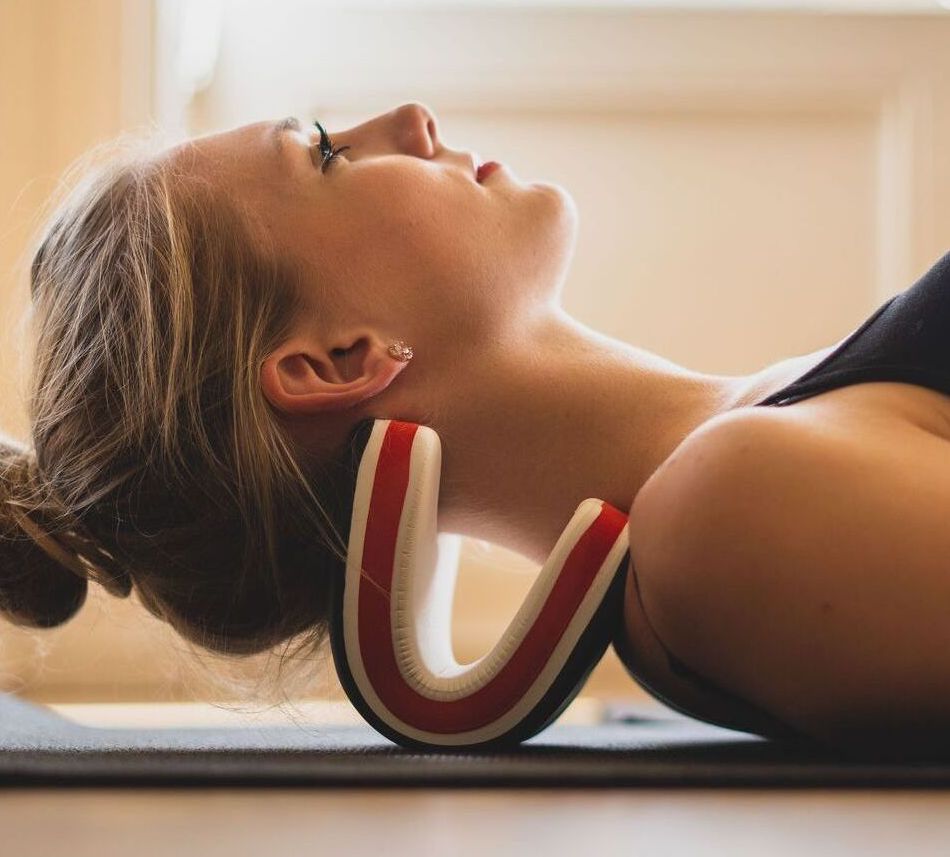Unraveling the Connection Between Cycling, Triathlons, and Neck Pain

Cycling and triathlons are popular forms of endurance sports that offer a multitude of physical and mental benefits. They improve cardiovascular health, build strength, and provide a sense of accomplishment. However, like any physical activity, they can also bring about certain challenges, one of which is neck pain. Neck pain is a common complaint among cyclists and triathletes, often stemming from the prolonged and repetitive nature of these sports. In this blog, we'll delve into why cycling and triathlons can cause neck pain and explore ways to mitigate and prevent this discomfort.

1. Prolonged Posture
Cycling and triathlons involve maintaining a forward-leaning posture for extended periods. This position places a significant amount of stress on the neck, as the rider's head is required to stay in an upward position to maintain visibility while the body is bent forward. This prolonged posture can lead to muscle fatigue, strain, and tension in the neck and upper back muscles.
2. Improper Bike Fit
One of the primary contributors to neck pain in cyclists and triathletes is an improper bike fit. If the bike is not adjusted correctly to match the individual's body proportions and flexibility, it can lead to biomechanical issues. A bike that is too large or too small can force the rider into an uncomfortable position, causing them to crane their neck to see the road ahead. This misalignment can lead to overuse of neck muscles, resulting in pain and discomfort.
3. Limited Neck Mobility
The aerodynamic position required in triathlons can restrict neck mobility. During the swim, bike, and run segments, triathletes tend to keep their head in a relatively fixed position to optimize aerodynamics and maintain balance. This lack of movement can cause stiffness and muscle imbalances in the neck and upper back, ultimately leading to pain and reduced flexibility.
4. Excessive Tension in Upper Body
Both cycling and triathlons demand a stable core and upper body engagement to maintain control and power output. However, excessive tension in the upper body, often caused by gripping the handlebars tightly or tensing the shoulders, can translate into increased strain on the neck muscles. As the muscles in the upper body become fatigued, the neck might be forced to compensate, resulting in discomfort and pain.
5. Overtraining and Inadequate Recovery
Training for cycling and triathlons involves intense and repetitive movements that can lead to muscle imbalances and overuse injuries. Overtraining without allowing adequate time for recovery can contribute to tightness and tension in the neck area. When muscles don't have time to repair and rebuild, they can become more prone to strain and pain.

Prevention and Management
-
Proper Bike Fit: Ensuring that your bike is fitted correctly to your body dimensions is crucial. Consult a professional bike fitter to adjust the saddle height, handlebar position, and other components to match your body mechanics.
-
Strengthening Exercises: Incorporate exercises that target the muscles of the neck, upper back, and shoulders to improve their strength and endurance. This can help support your neck during rides and reduce strain.
-
Stretching and Mobility Work: Regularly engage in neck stretches and mobility exercises to maintain flexibility and prevent stiffness.
-
Gradual Training Progression: Avoid overtraining and allow ample time for recovery between sessions. Gradually increase your training intensity and duration to give your muscles time to adapt.
-
Ergonomic Considerations: Pay attention to your body posture while cycling or participating in triathlons. Relax your grip on the handlebars, keep your shoulders down and relaxed, and periodically adjust your head position to reduce strain on the neck.

- Brigitte Marshall



Comments 0